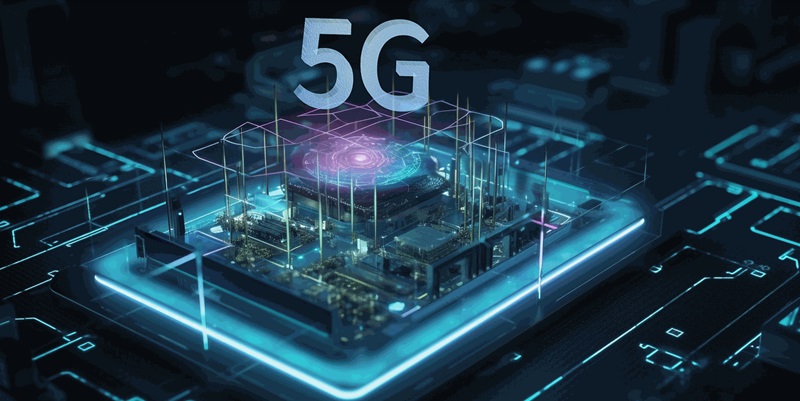Five years into the 5G revolution, 2024 stands as a significant turning point for this groundbreaking technology, marking a monumental phase in its maturation. 5G is reshaping the very fabric of our digital landscape, far beyond a mere upgrade from previous generations. It is a transformative force that ignites foundational changes across industries through industrial automation and digital innovation. Traditional sectors are transitioning as the qualities of 5G—which include substantial bandwidth, the capability for multiple connections, and nearly imperceptible latency—usher in a new era of mobile internet and herald the much-anticipated Internet of Everything.
The impact of 5G transcends enhanced connectivity, becoming a basic necessity in our increasingly digital society and standing as the foundation of a flourishing digital economy. This revolutionary technology is fueling the Internet of Things (IoT), poised for a vast expansion. Forecasts predict an explosion in the number of connected devices, rising from 9.7 billion in 2020 to an estimated 29 billion by 2030. 5G’s formidable infrastructure is essential for realizing the full potential of IoT applications across various domains such as smart homes, autonomous vehicles, Industry 4.0, and advanced healthcare, resulting in unparalleled quality and productivity at work and home.
Reinventing Connectivity and Industries
With each passing day, 5G’s promise is becoming a reality, extending its reach into diverse sectors like agriculture and logistics. The synergy between 5G and IoT is crafting smarter cities, remotely managed farms, and streamlined supply chains. As industries embrace these technologies, they begin to harness the powerful benefits of this alliance. Imagine autonomous vehicles instantaneously communicating with traffic systems or intelligent medical devices providing personalized healthcare—such visions are swiftly transitioning from science fiction to reality through the capabilities of 5G.
The evolution driven by the Internet of Things through 5G represents a paradigm shift that is not only technical but also economic and necessary. Smart homes, once considered a luxury, are becoming a common standard, revolutionizing our daily lives with automation. Industrial automation via IoT can significantly impact a business’s success. The low latency and high reliability of 5G enable systems to respond and adapt in real time, boosting efficiency and, in turn, strengthening the financial health of industries everywhere.
WiMi Hologram Cloud’s Bold Move
Five years into the 5G era, 2024 is identified as a key moment for this transformative technology. More than an incremental upgrade, 5G is fundamentally altering our digital environment by powering industrial and digital innovation. It is reshaping various sectors with high bandwidth, the ability to handle numerous connections, and near-zero latency, signaling the rise of the Internet of Everything.
5G has evolved from offering enhanced connectivity to becoming an indispensable element of our digital existence, supporting a dynamic digital economy. Its critical role in the era of the Internet of Things (IoT) is clear, as we approach a significant increase in connectivity, projections show a jump in the number of connected devices from 9.7 billion in 2020 to an estimated 29 billion by 2030. The robust framework provided by 5G is vital for the optimal functioning of IoT applications that span from smart homes to autonomous vehicles, from Industry 4.0 to advanced health services, improving quality and efficiency in both professional and domestic settings.

